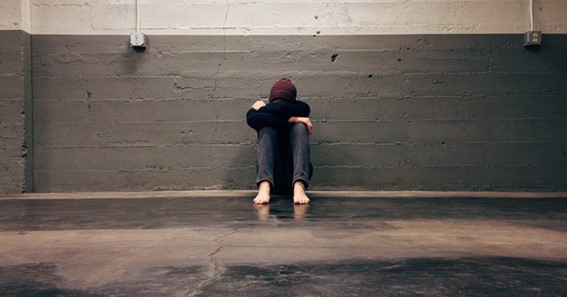If you think that you or a loved one may be suffering from depression, you should know more about its causes and symptoms. Fortunately, there are several effective treatments for it. If you have any questions, contact a physician to discuss your options. Your doctor can prescribe antidepressants, which are drugs that increase the level of chemical messengers in the brain. These drugs help you cope with it and reduce symptoms.
Symptoms
One in five adults experience symptoms of it at some point in their lives. These symptoms may be mild, moderate, or severe. If you’re interested in understanding someone with depression, read this article or click the previous link. The most common age groups experiencing these symptoms are adults aged 18-29, 65 and older, and 45-64 years of age
Even younger adults may experience these symptoms as well, but they are more likely to experience them at a milder stage. People suffering from it may experience low moods, hopelessness, or rage attacks. They may also experience headaches, poor sleep patterns, or changes in appetite.
Some people may even experience tremors. Tremors may also be an indication of it. The NHS recommends that people with these symptoms see their GPs for a diagnosis of depression. It is a very common mental disorder, but it is important to distinguish it from grief.
People with this disorder often feel worthless and unable to contribute to society. They may isolate themselves from family and friends, or even consider suicide. Many people who experience depression report that it is different from the other times they felt sad. It doesn’t improve on its own, and people with low self-esteem or poor psychiatric history are at greater risk of developing it.
Click here – 5 Reasons Why Used Cars Are The Best Deals Around
Treatment
Whether you are suffering from mild depression or severe it, there is a treatment for you. Treatment for it consists of psychological therapy and medicine to alleviate the symptoms. If you are depressed, you should seek professional medical advice immediately. Getting a diagnosis is essential as depression can affect the entire body.
Electroconvulsive therapy (www.mayoclinic.org/electroconvulsive-therapy) is a common form of it treatment. It involves administering mild electrical pulses to the brain, which triggers a brief seizure and increased brain activity. This treatment often helps to ease the symptoms of it and may prevent the symptoms from recurring. However, researchers are still not sure how it works. They speculate that it may change blood flow in the brain.
Other treatments for depression include vitamin supplements, herbal supplements, acupuncture, and relaxation techniques. Herbal treatments are not as effective as medication, but can help people with it by providing the right nutrients. It is important to note that many of these supplements have not been clinically tested, so consult a physician before using them.
Diagnosis
Depressed mood and a diminished interest in daily activities are common characteristics of it. Patients with depression also experience clinically significant distress and impairment of function. In addition to these characteristics, the patient must have symptoms that are not caused by direct physiologic effects of any substance or a general medical disorder.
Most it is diagnosed through self-report, but doctors may also observe the patient’s behavior. To properly diagnose it, a doctor will ask a patient a series of questions about their symptoms and general well-being. In addition to asking about their behavior patterns and thoughts, they may perform lab tests to identify certain markers.
A psychiatric evaluation may also include a questionnaire that outlines the symptoms of depression and may also include observations of the person’s appearance and speech. While diagnosing it may seem difficult, it is very important to ensure that a patient gets a proper diagnosis. Providing a diagnosis will prevent the patient from using the “I am not depressed” response, which can be a major barrier to treatment.
Other Options
There are several treatment options for it, depending on the symptoms and severity of your condition. A physical examination and lab tests can confirm the diagnosis, while a psychiatric evaluation will ask about your symptoms, thoughts, feelings, and behaviors. Some depression treatments are based on cognitive behavioral therapy, which teaches you new ways to cope with your symptoms.
Medication, including SSRIs, is the most common form of treatment for it, and you can learn more about it by clicking here. Therapy and exercises can also be effective. However, medication shouldn’t replace the advice of a medical professional. It’s important to understand the risks and benefits of both approaches.
While SSRIs are considered the safest form of antidepressants, there are also several other drugs available. Some of these are non-SSRI antidepressants that may have fewer side effects. You should discuss your treatment options with your doctor to avoid negative side effects. If the symptoms of your illness are severe, you may need to seek treatment in a hospital or an outpatient program.
Click here – Tips From A Cleaning Firm For Cleaning During A Move
